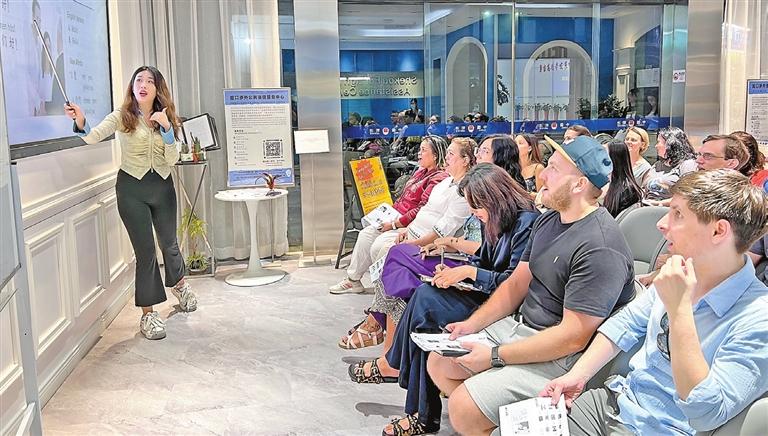
A Chinese language class kicked off a night school program initiated by the Shekou Management and Service Center for Expats (Shekou MSCE) on Wednesday night. Nearly 40 expat residents attended the event, which was held in the center’s activity room.
Some 20 minutes before the class began at 7 p.m., Brazilian Alexandre Ambrosio and a dozen other expats were already seated in the classroom going over study materials.
Although Ambrosio has lived in Shenzhen for 12 years, his Chinese proficiency remains basic since English is the predominant language at the European firm where he works as an executive.
“I am beginning to learn the language, and this is a wonderful opportunity,” said the Brazilian, who has transitioned from an engineer to an executive.
The class began with a young man from Georgia named Cao Cao sharing his Chinese learning journey. After a decade in China, he speaks the language fluently, though the different tones are still a challenge.
“I knew only one Chinese word through Google Translate before coming to China, which was ni hao [hello],” he told the class. “All I did is to keep practicing after moving here,” said Cao Cao, who emphasized that speaking the language has empowered him to better navigate his life and work in China.
The class covered basic Chinese characters, commonly used vocabulary, and simple sentence structures, which were framed within real-life contexts to facilitate interaction among the expats.
The nonprofit night school program is based on the former Chinese Language Class that the Shekou MSCE hosted twice a year, according to Rita Yang, head of the center.
The night school program will introduce new sports exchange and culture experience modules in October and November, respectively.
The sports module will include activities such as badminton, martial arts, and cycling, and allow expats to socialize. The cultural experience module will host events like traditional Chinese calligraphy, Chinese ink painting, and paper cutting.
The Chinese-language class, held weekly over a three-month period, will also have a new Cantonese session.
“We hope to create a friendly and inclusive environment for Chinese and non-Chinese residents in the community through these diverse courses and activities,” Yang said.
